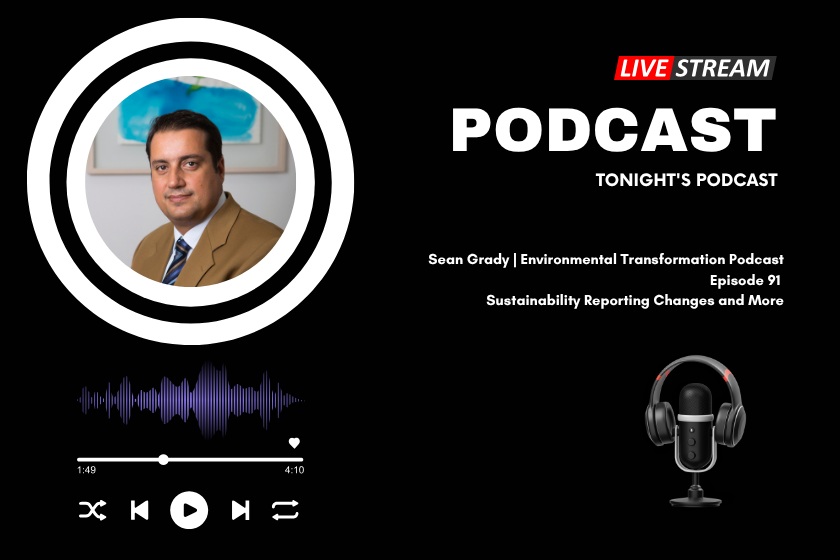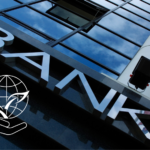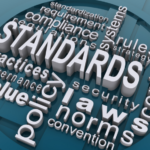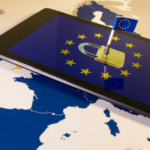Welcome to the Environmental Transformation Podcast with Sean Grady. In this Sustainability ESG interview, we’re joined by Nikos Avlonas, President and Founder of the Center for Sustainability and Excellence (CSE), for a deep dive into the evolving landscape of climate disclosure, ESG reporting standards, and executive sustainability leadership. Nikos brings expert perspective shaped by years of global training and consulting experience, including work with the SEC, Fortune 500 firms, and public agencies.
Host: Sean Grady, Environmental Transformation Podcast
Guest: Nikos Avlonas, President of the Centre for Sustainability and Excellence (CSE)
Introducing the Center for Sustainability and Excellence (CSE)
Sean Grady (Host): Nikos, welcome back to the show! For new listeners, can you give us a quick overview of CSE?
Nikos Avlonas: Thank you, Sean. It’s great to be here again. CSE is a global training and consulting firm specializing in sustainability. We operate in the U.S., Canada, Europe, the Middle East, Asia, and Africa. We help organizations—from Fortune 500 firms to government agencies and medium-sized enterprises—transform into more sustainable and resilient entities. Our core services include sustainability education and ESG consulting.
The SEC’s Climate Disclosure Rule: A Turning Point
Host: Let’s dive right in. The SEC’s new climate disclosure rule has generated a lot of attention. What’s your perspective on its impact?
Nikos Avlonas: This rule is a milestone. I had the opportunity to collaborate with the SEC during its consultation phase, helping organize stakeholder input. The rule requires public companies to identify material climate risks, report greenhouse gas emissions (starting with Scope 1 and 2), and eventually address Scope 3. It’s a clear signal: investors no longer want to back companies with unmitigated climate risks.
Water Risks: The Overlooked ESG Factor
Host: The rule also introduces requirements around water-related financial risks. That’s a new angle for many companies.
Nikos Avlonas: Yes, and it’s essential. Many companies underestimate water risk—either due to flooding, scarcity, or operational dependence. The rule pushes firms to better manage, reduce, and eventually offset water use. This is especially critical for global companies operating in water-stressed regions.
Verification & External Audits: Raising the Bar
Host: Another key feature is mandatory external audits. What does that mean for ESG transparency?
Nikos Avlonas: It’s a game-changer. Large filers must now submit data to third-party verification. That increases credibility and accountability. It also impacts ESG rating agencies, as more standardized and accurate data becomes available.
ESG Reporting for SMEs: The Trickle-Down Effect
Host: Many small and medium-sized enterprises (SMEs) aren’t publicly traded. Should they be concerned?
Nikos Avlonas: Absolutely. SMEs that serve large companies will face ESG requirements as part of supply chain compliance. If your client needs to meet SEC climate rules, you’ll need to provide data or meet sustainability criteria. This “trickle-down” effect is real and growing.
Meeting the Training Demand: CSE’s Global Reach
Host: The demand for sustainability education is exploding. How is CSE addressing this?
Nikos Avlonas: We’ve been leading in this space since 2004. Over 10,000 professionals from 90% of Fortune 500 firms and major agencies like NASA and the UN have completed our Certified Sustainability Practitioner programs. In 2024, we introduced dual certification—allowing professionals to specialize in areas like carbon footprinting, green marketing, ESG reporting, and supply chain sustainability.
Sustainability Acronyms & Complexity
Host: The sustainability field is a sea of acronyms—CSRD, IFRS, GRI, ESRS. How should professionals navigate this?
Nikos Avlonas: It’s overwhelming. You can’t know everything. That’s why we recommend a two-step approach: build a foundational understanding, then specialize. Sustainability is constantly evolving—it’s a moving target. Continuous learning is essential.
Materiality Assessments: Mapping What Matters
Host: One area that stood out in your training was materiality assessment. Can you explain its role?
Nikos Avlonas: A materiality assessment identifies which ESG topics matter most to both stakeholders and internal leadership. By combining these perspectives, you define your organization’s most impactful ESG priorities. It’s the foundation for a solid strategy.
Trends in ESG Reporting: From Voluntary to Mandatory
Host: ESG reporting is changing rapidly. What’s the current landscape?
Nikos Avlonas: It’s become more complex. We’re moving from voluntary frameworks (like GRI, SASB, and TCFD) to mandatory reporting in many regions. Legislation now often overrides voluntary standards. That means more complexity—and more need for proper training and tools.
Greenwashing, Bluewashing, Rainbow Washing
Host: We’ve all heard of greenwashing. But you also talk about “bluewashing” and “rainbow washing.” What do those mean?
Nikos Avlonas: They’re all forms of misleading communication. Greenwashing refers to false environmental claims. Bluewashing misrepresents social responsibility efforts. Rainbow washing refers to improper use of the UN Sustainable Development Goals for branding. These erode trust—and stricter legislation is needed to prevent them.
Scope 3 Emissions: The Next Frontier
Host: Scope 3 emissions are difficult to track. What’s the reality for most companies?
Nikos Avlonas: Scope 3 emissions—those from suppliers—are the hardest to measure and verify. In Europe, reporting them is already mandatory. But data is often lacking, so companies rely on estimates. It’s a major challenge and will take years to refine.
Technology’s Role: Still a Work in Progress
Host: Are digital tools ready to support companies with reporting and emissions tracking?
Nikos Avlonas: We’ve seen a boom in AI-based platforms, but the perfect solution doesn’t exist yet. Big players like Microsoft and Google are entering the space, which is promising. But so far, no tool fully meets the needs of global ESG compliance. It’s a massive opportunity.
Rising to Executive Level: CSOs and CROs
Host: Do you think Chief Sustainability Officers will become more influential in corporate strategy?
Nikos Avlonas: Absolutely. We’re already seeing sustainability performance tied to executive bonuses. Expect more Chief Climate Resilience Officers (CROs) too. These roles will grow in authority and pay, especially as sustainability becomes a financial and compliance imperative.
How to Start Your ESG Journey with CSE
Host: For those listening who want to grow their ESG credentials, what’s the best way to begin?
Nikos Avlonas: Visit www.cse-net.org. Whether you’re a student or a seasoned professional, our programs offer practical tools and globally recognized certifications to help you lead change from within your organization.
Host: Nikos, thank you again for joining us. Your insights continue to guide professionals and companies alike through the evolving world of sustainability.
Nikos Avlonas: Thank you, Sean. Always a pleasure to share knowledge and help build the leaders of tomorrow.









